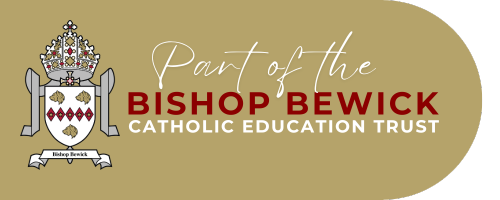
ENGLISH
INTENT
The study of English develops children’s abilities to listen, speak, read and write for a wide range of purposes, so using language to learn and communicate ideas, views and feelings. It enables children to express themselves creatively and imaginatively, as they become enthusiastic and critical readers of stories, poetry and drama, as well as non-fiction and media texts. Children gain an understanding of how language works by looking at its patterns, structures and origins. Children use their knowledge, skills and understanding in speaking and writing across a range of different situations. Our English curriculum enables our children to gain expertise, knowledge and skills in key aspects of English Language and Literature.
The aims of English are:
-
to enable children to speak clearly and audibly in ways which take account of their listeners;
-
to encourage children to listen with concentration in order to be able to identify the main points of what they have heard;
-
to enable children to adapt their speech to a wide range of circumstances and demands;
-
to develop children’s abilities to reflect on their own and others’ contributions and the language used;
-
to enable children to evaluate their own and others’ contributions through a range of drama activities;
-
to develop confident, independent and fluent readers through an appropriate focus on word, sentence and text-level knowledge;
-
to encourage children to become enthusiastic and reflective readers through contact with challenging and lengthy texts;
-
to help children enjoy writing and recognise its value;
-
to enable children to write with accuracy and meaning in narrative and non-fiction;
-
to increase the children’s ability to use planning, drafting and editing to improve their work.
IMPLEMENTATION
Teaching and Learning Style
At St Cuthbert’s Catholic Primary School we use a variety of teaching and learning styles in English lessons. Our principal aim is to develop children’s knowledge, skills, and understanding in English. We do this through a daily lesson that has a high proportion of whole-class and group teaching. During these lessons children experience a whole-class shared reading or writing activity, a whole-class focused word or sentence activity, a guided group or independent activity and a whole-class session to review progress and learning. They have the opportunity to experience a wide range of texts and use a range of resources such as dictionaries, thesauruses and phonic paddles to support their work. Children use ICT in English lessons where it enhances their learning, as in drafting their work and using multimedia to study how words and images are combined to convey meaning. Wherever possible we encourage children to use and apply their learning in other areas of the curriculum.
There are children of differing ability in all classes at St Cuthbert’s. We recognise this fact and provide suitable learning opportunities for all children by matching the challenge of the task to the ability of the child. We achieve this through a range of strategies. In some lessons we do it through differentiated group work, while in other lessons we ask children to work from the same starting point before moving on to develop their own ideas. We use classroom teaching assistants to support some children and to enable work to be matched to the needs of individuals.
English Curriculum Planning
English is a core subject in the National Curriculum. We use the National Curriculum as the basis for implementing the statutory requirements of the programme of study for English.
We carry out the curriculum planning in English in three phases (long-term, medium-term and short-term). The National Curriculum and our yearly Step Grids detail the objectives we teach in the long-term. Our yearly Curriculum Maps identify the topics in English that we teach to each year and in each year group.
Our medium-term plans, which we also base on the Step Grids, give details of the main teaching objectives for each term. These plans define what we teach and ensure an appropriate balance and distribution of work across each term.
The English subject leader is responsible for keeping and reviewing these plans.
-
Phonics into Reading is taught daily in EYFS and Y1
-
Phonics into Reading and Spelling is taught daily in Y2
-
Grammar, Punctuation and Spelling are taught daily in KS2
Speaking and Listening, Reading and Writing in English lessons are taught through the 8 main text types: Narrative, Poetry, Recount, Instruction, Non-chronological Report, Explanation, Persuasion and Discussion.
Class teachers complete a unit (short-term) plan for the teaching of English. This lists the specific learning objectives for each lesson and gives details of how the lessons are to be taught. It also includes details of what each group of children will be learning. The class teacher keeps these individual plans, and the class teacher and subject leader often discuss them on an informal basis.
Early Years Foundation Stage
We teach English in Early Years as an integral part of the school’s work. The format for the daily lesson is similar to that used in the rest of the school following a similar structure and format but lessons are shorter and, of course, age appropriate. We relate the English aspects of the children’s work to the objectives set out in the Early Learning Goals which underpin the curriculum planning for children aged three to five. We give all children the opportunity to talk and communicate in a widening range of situations, to respond to adults and to each other, to listen carefully, and to practise and extend their range of vocabulary and communication skills. They have the opportunity to explore, enjoy, learn about, and use words and text in a range of situations.
IMPACT
The impact of our curriculum means that pupils at St Cuthbert’s Catholic Primary School will leave primary school:
-
being able to achieve success in all areas of their lives
-
being an enthusiastic reader, writer and speaker
-
confident to take risks in their reading and writing
-
with a love of discussion who enjoy showcasing their knowledge and skills
-
with a rich and varied vocabulary
-
with the ability to produce high-quality writing across a range of forms and adapt their writing successfully, considering the audience and purpose
-
with the passion and skills to access the KS3 curriculum and beyond
Attainment:
-
All pupils to achieve to the very best of their ability with no child left behind.
-
Attainment at the end of EYFS, KS1 and KS2 is at least in line with the National Average.
-
The % of pupils working at ARE within each year group will be at least in line with the National Average.
-
The % of pupils working at Greater Depth within each year group will be at least in line with the National Average.
-
Attainment in the Phonics Screening Check, at least in line with the National Average.
-
There will be no significant gaps in the progress of different groups of pupils (e.g. disadvantaged vs non-disadvantaged)
For more information, please see our other English Policies.


